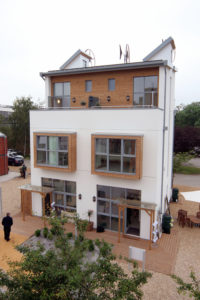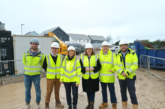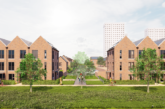 Alex Goodfellow, Group Managing Director, Stewart Milne Timber Systems and Board Director of Stewart Milne Group comments on The Chancellor of the Exchequer’s announcement that the Government will introduce a Future Homes Standard by 2025.
Alex Goodfellow, Group Managing Director, Stewart Milne Timber Systems and Board Director of Stewart Milne Group comments on The Chancellor of the Exchequer’s announcement that the Government will introduce a Future Homes Standard by 2025.
The Government’s planned introduction of a Future Homes Standard by 2025 — to ensure all new-build homes are future-proofed with low-carbon heating and world-leading levels of energy efficiency — is welcome news for the housebuilding and offsite timber frame industry.
In order for Government energy/carbon and housing targets to be met efficiently, it’s important that the initial focus is on the energy efficiency of the building fabric before adopting low and zero carbon technologies. Offsite timber frame construction is a proven energy efficient, cost-effective and modern building system, as timber is a carbon neutral building material.
The benefits of using timber are threefold: a low energy heating demand through airtight, thermally superior building envelopes; carbon-neutral raw material; and the mainstream adoption of a proven modern method of construction.
Stewart Milne Timber Systems created the Sigma Home in 2007 — the UK’s first five-star rating, near zero carbon home — under the Government’s Code for Sustainable Homes. The prototype has since given us a wealth of knowledge on how to build for a low-carbon future leading to our involvement in the supply of more than 1,500 low energy/carbon homes, including two of the Government’s flagship eco-towns, Bicester (Oxfordshire) and Bordon (Hampshire). Efficient timber frame building fabric, coupled with renewable technologies such as solar panels is key to energy-efficient homes and will ensure the decarbonisation of the UK housing stock over time.”
Pictured above is Stewart Milne Timber Systems’ factory at Witney, where it manufactures precision-engineered timber frame.









